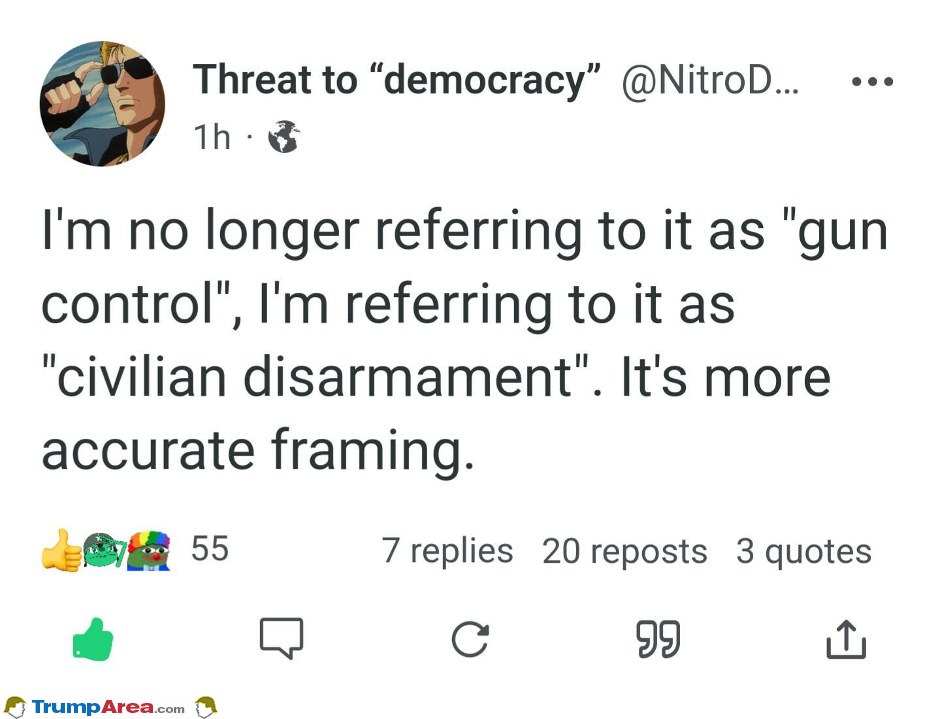Ever wondered which tools, methods, or systems are truly more accurate in our everyday lives? Well, buckle up because we're about to unravel the mysteries behind precision and reliability in a way that'll blow your mind. Whether you're a tech enthusiast, a student, or just someone curious about the world around you, understanding "which is more accurate" can change the way you make decisions. From GPS trackers to health monitors, let's dive in and find out what really matters when it comes to accuracy.
Accuracy isn’t just a buzzword—it’s a fundamental concept that shapes everything from scientific research to everyday gadgets. Imagine relying on a device that claims to be accurate but ends up sending you in the wrong direction or giving you incorrect readings. Frustrating, right? That’s why understanding what makes something truly accurate is crucial. In this article, we’ll explore the factors that influence accuracy and help you make informed choices.
So, why does "which is more accurate" matter so much? The answer lies in the impact it has on our daily lives. Whether you're comparing fitness trackers, weather forecasts, or even AI-generated content, accuracy is the backbone of trust. By the end of this article, you'll have a clearer picture of what to look for and how to evaluate different tools and systems. Let’s get started!
Read also:Venice Beach Florida A Paradise On The Gulf Coast You Donrsquot Want To Miss
What Does "Which Is More Accurate" Even Mean?
When we talk about accuracy, we’re referring to how close a measurement, prediction, or result is to the true value. But here’s the twist: "which is more accurate" depends heavily on the context. For example, a GPS system might be accurate for navigation, but it might not be precise enough for surveying land. Understanding the nuances of accuracy is key to making the right decisions.
Let’s break it down further:
- Accuracy measures how close a result is to the actual value.
- Precision refers to how consistent the results are when repeated multiple times.
- Reliability combines both accuracy and precision to determine how trustworthy a system or tool is.
In short, asking "which is more accurate" isn’t just about finding the best tool—it’s about understanding the trade-offs and limitations of each option.
Factors That Influence Accuracy
Now that we know what accuracy means, let’s dive into the factors that affect it. Whether you’re dealing with technology, science, or even human judgment, several elements come into play:
1. Calibration and Maintenance
Calibration is like giving your tools a regular tune-up. Without proper calibration, even the most advanced systems can lose their accuracy over time. For example, a blood pressure monitor that hasn’t been calibrated recently might give you readings that are way off.
2. Environmental Conditions
External factors like temperature, humidity, and even air pressure can impact accuracy. Think about how your smartphone’s GPS behaves differently in a city with tall buildings versus an open field. These conditions can throw off even the most advanced sensors.
Read also:Temporary Replacement Part 3 Full The Ultimate Guide Yoursquove Been Waiting For
3. Human Error
Let’s face it—humans aren’t perfect. Whether it’s misreading a scale or entering the wrong data into a system, human error can significantly affect accuracy. That’s why automation and AI are often brought in to minimize these mistakes.
But here’s the kicker: even AI isn’t immune to errors. It all depends on how well the system is designed and maintained.
Comparing Tools: Which Is More Accurate?
Now let’s get into the nitty-gritty of comparing different tools and systems. From fitness trackers to weather apps, here’s how you can determine which one is truly more accurate:
1. Fitness Trackers
When it comes to fitness trackers, accuracy can vary widely depending on the brand, model, and features. Some trackers excel at measuring heart rate, while others focus on step counting or sleep patterns. According to a study published in the Journal of Medical Internet Research, Fitbit devices tend to be more accurate for step counting, while Apple Watches perform better for heart rate monitoring.
2. GPS Systems
GPS accuracy is crucial for navigation, especially when you’re driving or hiking in unfamiliar territory. Modern GPS systems can be accurate to within a few meters, but urban environments with tall buildings can cause interference. For professional applications like surveying, more advanced systems with differential GPS (DGPS) are used to achieve centimeter-level accuracy.
3. Weather Forecasts
Weather forecasting has come a long way, thanks to advancements in satellite technology and computer modeling. However, predicting the weather accurately beyond a week is still a challenge. The National Oceanic and Atmospheric Administration (NOAA) reports that 1-day forecasts are about 80% accurate, while 5-day forecasts drop to around 50% accuracy.
The Role of Technology in Improving Accuracy
Technology plays a massive role in enhancing accuracy across various fields. From AI-driven analytics to advanced sensors, modern tools are revolutionizing the way we measure and predict outcomes. But with great power comes great responsibility. Here are some examples:
1. AI and Machine Learning
AI systems are becoming increasingly accurate at tasks like image recognition, speech processing, and even medical diagnosis. For instance, Google’s DeepMind has achieved remarkable accuracy in diagnosing eye diseases by analyzing retinal scans. However, AI models require large amounts of high-quality data to function effectively, and bias in the data can lead to inaccurate results.
2. Sensor Technology
Sensors are the backbone of many modern devices, from smartphones to industrial equipment. Advances in sensor technology have led to improvements in accuracy and reliability. For example, LiDAR sensors used in autonomous vehicles can create highly detailed 3D maps of their surroundings, enabling safer navigation.
3. Blockchain and Data Integrity
Blockchain technology is being explored as a way to ensure the accuracy and integrity of data. By creating immutable records, blockchain can help prevent tampering and errors in fields like finance, healthcare, and supply chain management.
Real-World Applications of Accuracy
Understanding accuracy isn’t just theoretical—it has real-world implications that affect our daily lives. Here are a few examples:
1. Healthcare
In healthcare, accuracy can mean the difference between life and death. From diagnostic tests to surgical procedures, precision is critical. For instance, cancer screenings need to be highly accurate to avoid false positives or negatives, which can lead to unnecessary treatments or delayed interventions.
2. Finance
In the financial world, accuracy is essential for everything from stock trading to fraud detection. High-frequency trading algorithms rely on precise data to make split-second decisions, while fraud detection systems use advanced analytics to identify suspicious transactions.
3. Manufacturing
In manufacturing, accuracy ensures that products meet quality standards and function as intended. Precision machinery and automated systems help minimize defects and improve efficiency, leading to cost savings and increased customer satisfaction.
Challenges in Achieving Accuracy
While accuracy is highly desirable, achieving it isn’t always easy. Here are some common challenges:
1. Data Quality
Poor-quality data can lead to inaccurate results, no matter how advanced the system is. Incomplete, outdated, or biased data can skew predictions and decisions, making it crucial to invest in data cleaning and validation processes.
2. Complexity
As systems become more complex, maintaining accuracy becomes more challenging. For example, predicting the weather involves analyzing vast amounts of data from multiple sources, and small errors can compound over time.
3. Cost
Highly accurate systems often come with a hefty price tag. Whether it’s advanced sensors, powerful computing hardware, or specialized software, achieving precision can be expensive. This makes it important to balance accuracy with cost-effectiveness.
How to Evaluate Accuracy
So, how do you determine which tool or system is truly more accurate? Here are a few tips:
- Look for independent reviews and studies that compare different products or services.
- Check the specifications and features of each option to see how they align with your needs.
- Consider the reputation and track record of the manufacturer or provider.
- Test the product yourself if possible to see how it performs in real-world conditions.
Remember, accuracy isn’t a one-size-fits-all concept. What works for one person might not work for another, so it’s important to evaluate each option carefully.
The Future of Accuracy
As technology continues to evolve, so too will our ability to achieve greater accuracy. Advances in quantum computing, nanotechnology, and artificial intelligence promise to push the boundaries of what’s possible. However, with these advancements come new challenges, such as ensuring ethical use and protecting privacy.
Looking ahead, the quest for accuracy will remain a driving force across industries. Whether it’s improving medical diagnostics, enhancing weather forecasting, or optimizing manufacturing processes, the pursuit of precision will continue to shape the world around us.
Conclusion
In conclusion, asking "which is more accurate" is a question that touches every aspect of our lives. From fitness trackers to weather forecasts, accuracy matters because it directly impacts our decisions and outcomes. By understanding the factors that influence accuracy and evaluating tools carefully, you can make smarter choices and achieve better results.
So, what’s next? Take a moment to reflect on the tools and systems you rely on every day. Are they as accurate as they could be? Could you benefit from upgrading to a more precise solution? Share your thoughts in the comments below, and don’t forget to check out our other articles for more insights and tips.
And hey, if you found this article helpful, be sure to share it with your friends and family. Who knows? You might just help someone else find the answers they’ve been looking for!
Table of Contents


